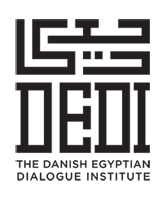MEDIA RELEASE BY PRETORIA PEN, FOLLOWING ON WRITER RIANA SCHEEPERS'S PUBLIC COMMENTS
.jpg?1360927833)
South Africa's chains of the mind
Since 1989 violence in South Africa has almost constantly increased to a level where the country today resembles a war zone. In fact, civilian casualty rates in South Africa are higher than in Afghanistan and many other countries officially at war.
Authors and literary critics too, have not been spared. Pieter Pieterse, Lisbé Smuts-Smith and Louw Rabie, brother of Jan Rabie, were brutally murdered. Last year novelist and script writer Chris Barnard was held hostage and tortured. A week ago the elderly parents of Riana Scheepers were attacked and almost killed, leading her to remark in the Johannesburg daily Beeld: "The country is in a state of moral decay."
South Africa is the country with the highest incidence of rape in the world, even higher than in war-torn countries. However, after describing an interracial gang rape in his novel Disgrace, Nobel prize winner J.M. Coetzee was accused of racism and many think that criticism by former President Thabo Mbeki contributed to his decision to emigrate to Australia, a safe haven for many South Africans fleeing local violence.
If anything, South Africa today represents a dystopia that in any other country would have led to at least some literary or philosophical reflection. As evidenced by Riana Scheepers's guilt-ridden protestations that "my mother and father are not two racists living in a white tower" (as if racists deserve the death penalty), authors are petrified of even referring to the factual reality, let alone venturing into the minefield of describing sadistic practices and ethnic torture in books.
Whereas political correctness in other countries may be the subject of jokes and satire, in South Africa it has almost become a religious dogma. Just two weeks ago, the seasoned and respected Afrikaans poet Breyten Breytenbach who spent eight years in prison for plotting the overthrow of the previous (white) government, remarked: "Political correctness all over the world is a disease, multiculturalism is worse than the Black Death of the Middle Ages!"
In a national living out of the Stockholm syndrome, journalists and even ordinary people on Facebook are quick to castigate and vilify anyone who dares to ascribe moral responsibility to the mostly young, Clockwork-Orange-like perpetrators, who are usually seen as the unfortunate victims of poverty and broken homes. Those intrepid novelists, such as Gustav Venter, who have tried to render explicit some of the underlying fears, neuroses and paradoxes around violence that proliferate in our bizarre ex-British colony, have not even been reviewed. They find themselves in a twilight, underground world of electronic samizdat, unseen by critics and pundits.
Breytenbach's comments on political correctness and multiculturalism, although echoing those of Chancellor Angela Merkel a few years ago, probably also represent a bridge too far. It is quite possible that he will be "uninvited" from the Woordfees and other festivals where authors are censored or even banned from the premises for broaching taboo topics around murder, rape and torture.
South Africa is repeating the totalitarian mental structures of many twentieth-century societies, especially in Eastern Europe. In imagining itself as an ideal society, a multicultural democracy after the American model, it is refusing to acknowledge its own, increasingly dark side. It punishes or censors those who dare to speak out or depict in their works the often innocent victims of social, criminal and political violence.
Whereas the gulag of Solzhenitsyn was physical and - although hidden - visible enough to be eventually exposed in broad daylight, our chains are those of the mind. In the kind of "Western masochism" described by French "new philosopher" and novelist Pascal Bruckner, we engage in endless self-flagellation and guilty rituals, instead of being open to the new and often ugly reality we see all around us.
Not only the violence and dehumanisation, but also the venality, the ostentation and spendthrift ways of the South African elite, are phenomena betraying the amoral values of our society.
Who will dare to portray South Africa's agony and decadence, at the risk of the cliché: publish and be damned?
Issued by: Dr. Dan Roodt, President
PRETORIA PEN is a literary society.
Contact: [email protected]












 Doris Poklekowski.jpg)














Post new comment